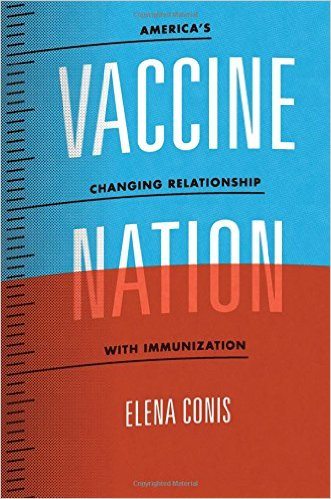Vaccine Nation: America’s Changing Relationship with Immunization
For a long time after the first vaccine was discovered, for smallpox in 1798, vaccination was largely a personal decision. But after a vaccine was created for polio in 1955, things started to change. From drives to eliminate polio in the United States through widespread vaccination, to ambitious plans to eliminate lesser childhood diseases like measles and whooping cough, to the push to reduce cases of hepatitis B through vaccination at birth, vaccines have steadily become a prevalent part of the early medical care of many children in our country. But it has been far from smooth sailing, and today the topic of childhood vaccinations tends to be a deeply contentious one. With Vaccine Nation, Elena Conis explores the history of vaccines in our country, exploring the many reasons (medical, societal, political, financial) why their use has become so widespread. Conis also spends a fair amount of time discussing the many legitimate reasons why people from all walks of life are sometimes skeptical of vaccines, covering heavy metals in the ingredient lists, safety concerns over testing, and vaccine injuries. With its extensive list of sources, Vaccine Nation is a surprisingly balanced history of this controversial topic.
| Author | |
|---|---|
| Star Count | 4/5 |
| Format | Hard |
| Page Count | 344 pages |
| Publisher | University of Chicago Press |
| Publish Date | 2014-Oct-20 |
| ISBN | 9780226923765 |
| Bookshop.org | Buy this Book |
| Issue | January 2015 |
| Category | Current Events & Politics |
| Share |








Reviews
There are no reviews yet.